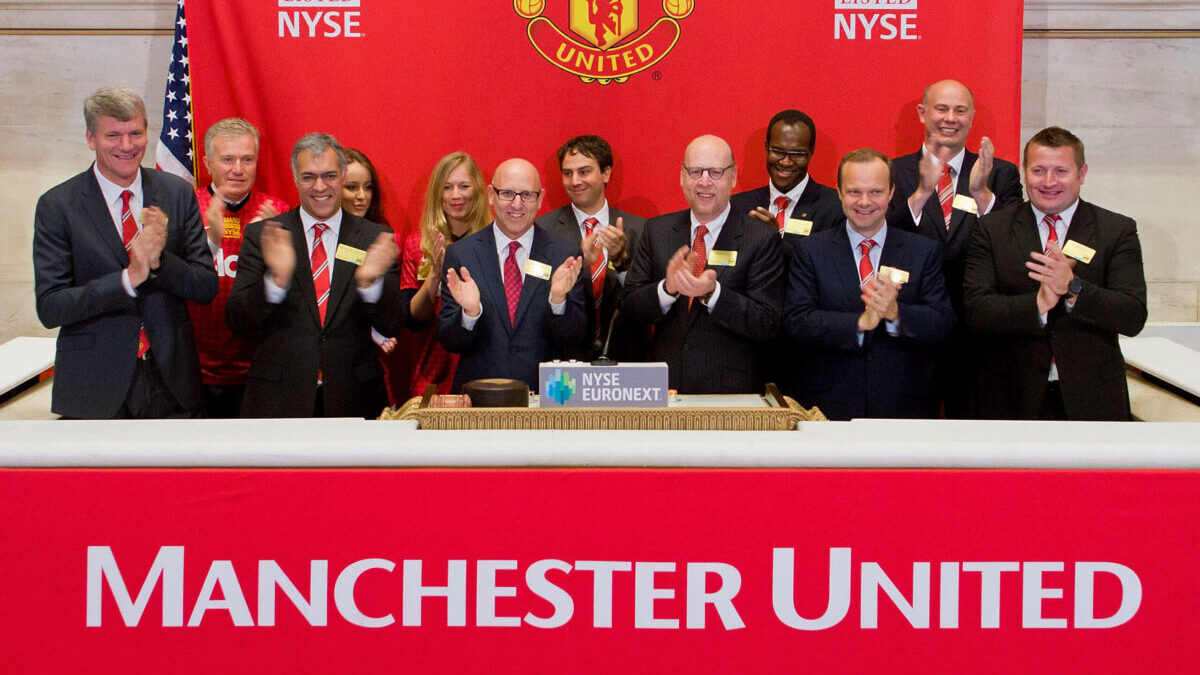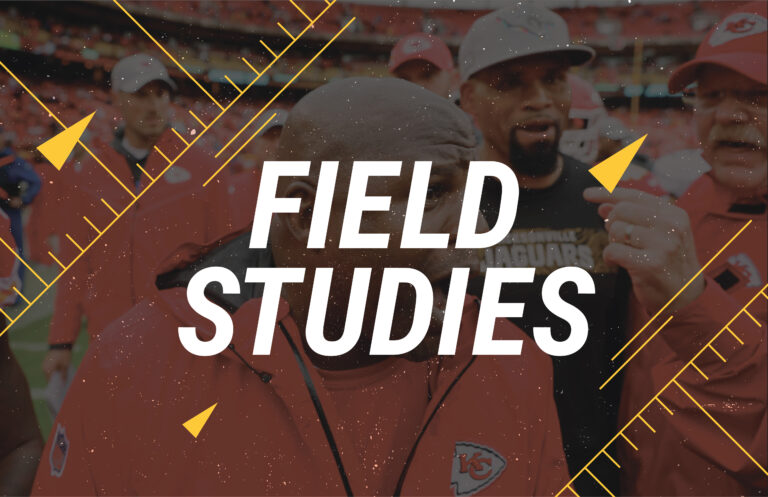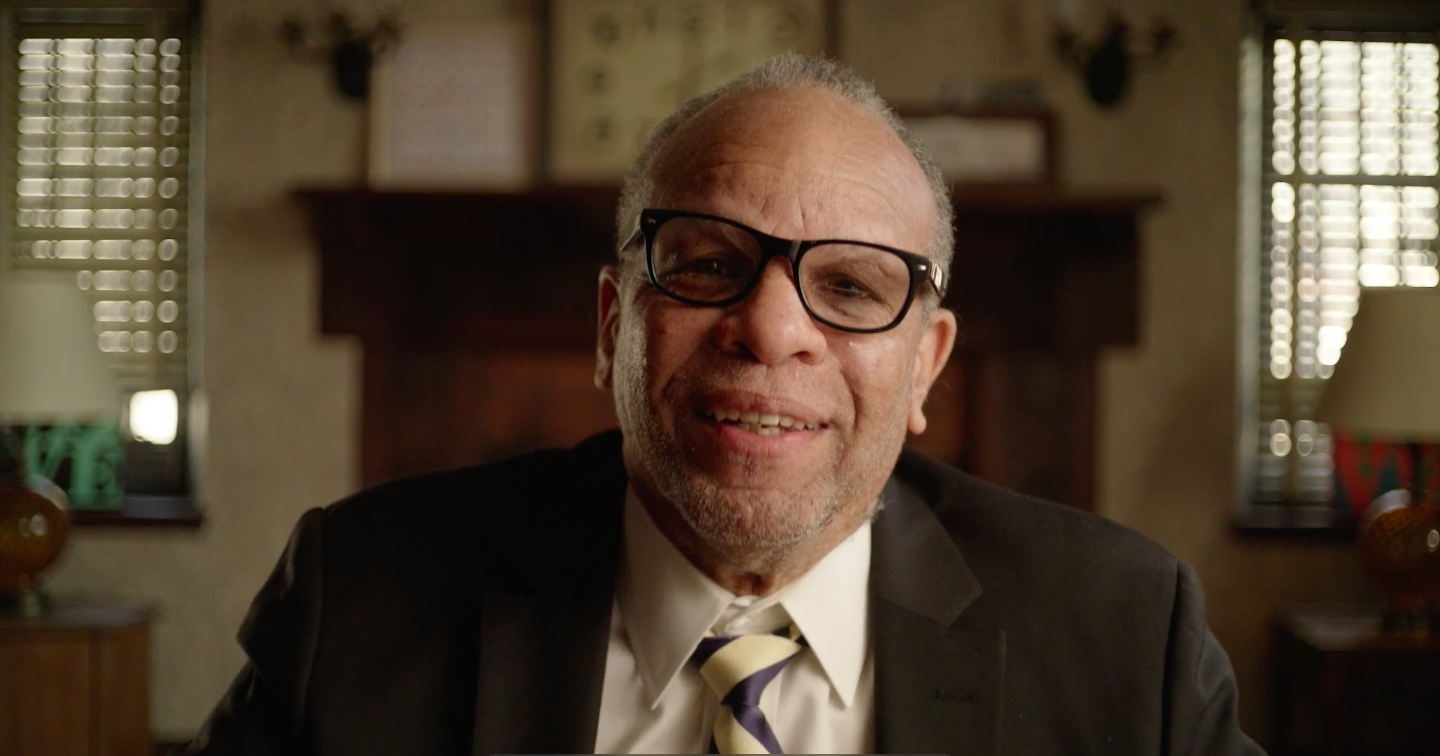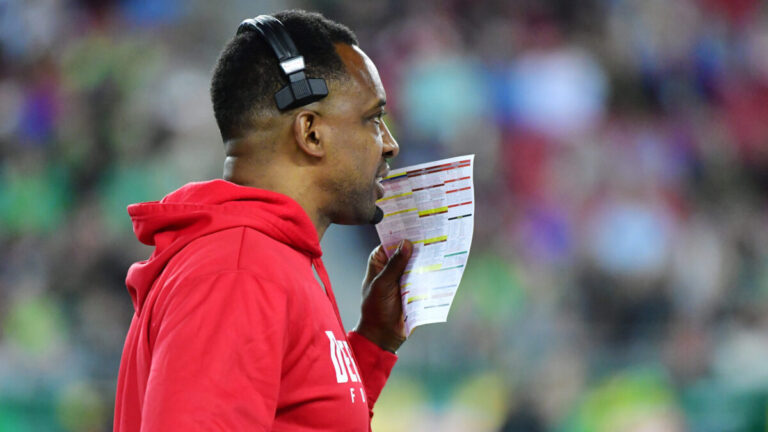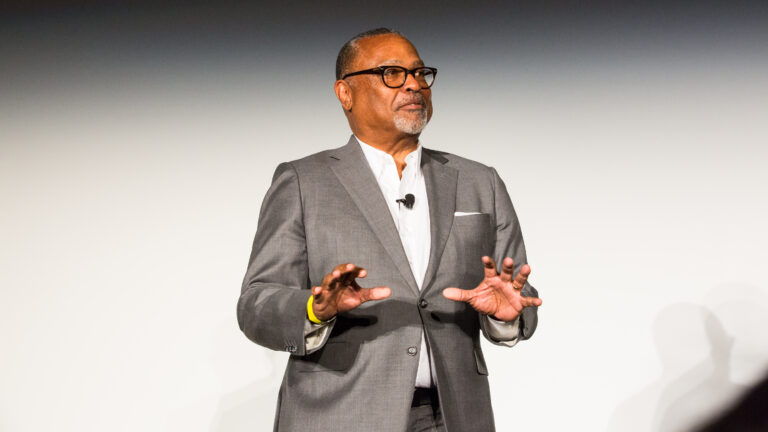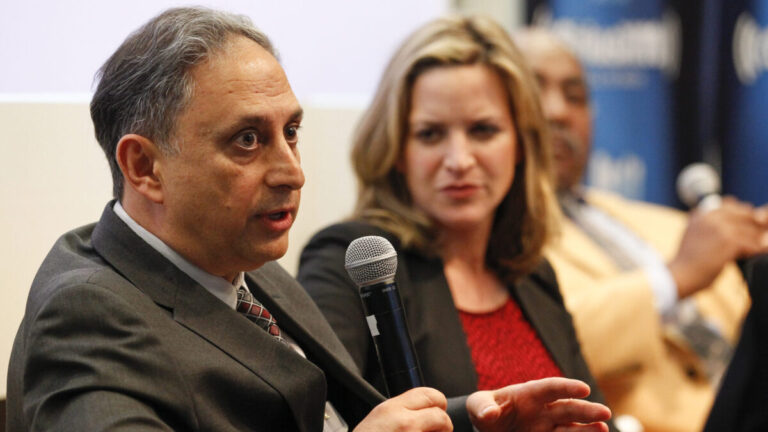Football Or Fútbol? Doesn't Matter. It's All in the Family.
Why this matters
As sport becomes increasingly global, major sports franchises and family-owned operators are looking towards soccer to diversify their investments.
In 2019, the world beyond the United States accounted for 73% of Hollywood’s box office revenues, up from 36% in 1990. That makes sense for a fully globalized industry, given that the United States accounts for 24% of the world’s economy. I shared these figures on the first day of my Sport and Globalization class at Arizona State University because I believe the sport industry, following in the footsteps of film and music, is the next form of entertainment that is in for a period of sustained and transformative U.S.-led globalization.
Up until now, U.S. sports have lagged behind other American entertainments in their global reach. While only 1 in 4 people watching a Hollywood blockbuster are in the United States, 2 out of 3 of Sunday’s estimated global audience for the Super Bowl, our nation’s most celebrated sporting extravaganza, will be watching here. And while the worlds of cinema and music do revolve around the U.S., the Super Bowl’s worldwide audience is dwarfed each year by soccer’s European Champions League final, not to mention international competitions like the men’s World Cup and Olympics.
But sport feels different, of course, than other forms of shared culture. We think of the on-field (or on-court) professional teams we follow as bound by geography. In Sunday’s big game, we will be rooting for Kansas City or Tampa Bay, teams rooted in a tangible place, representative of their communities, vessels for their fans’ memories and aspirations, shepherded perhaps by a local civic-minded tycoon or family who amassed a fortune in another industry, or by the good luck of buying into the game a long time ago.
To watch a few minutes of a National Football League telecast is to be bombarded with national and multinational brands – the Nike swoosh on the jerseys, the Bose headphones on the coaches, the Microsoft tablets on the sidelines and in the booths, and then Disney, Ford, Amazon AWS, Procter and Gamble, and Pepsi on the commercial break. The only two brands on display that appear constrained in their geographic reach are the two sporting franchises at the center of the action, though of course collectively their brands are reflected in the power of the omnipresent NFL shield.
But this is all about to change. The actual operators of our favorite sporting teams are in the early stages of a process of conglomeration and multi-nationalization that is not dissimilar to what’s happened in plenty of other industries. Someday, the Kansas City and Tampa teams playing on the field might be controlled by an entity that is not of those communities (not even a carpetbagger pretending to be) but is rather a multi-national, multi-league operator whose identity and brand transcends geography.
Come to think of it, the Tampa Bay Buccaneers are a precursor of this phenomenon. The team’s owners, the Glazer family, are already the principal shareholder of another sporting entity with a far greater global reach than the Bucs – the English Premier League’s Manchester United soccer club.
The globalization of sport ownership has been accelerating in recent years. Sport remains a glamorous industry for billionaires around the world looking for a reputation boost and vanity trophies, as well as a stodgy industry ripe for disruption in the eyes of investment funds looking to leverage under-appreciated assets and maximize returns. Moreover, sport remains the last form of compelling, live synchronous entertainment. And, as such, sport is mass media’s last great hope.
One of the reasons why sports franchise operators have been slow to globalize, in comparison to other industries, is that for much of the postwar era Americans – the designated globalizers of pop culture – didn’t care much for the world’s default sport (soccer) and had limited success getting the rest of the world to swap it out for any one of ours. It’s that curious cocktail of American exceptionalism and isolationism that led us to christen the championship of one of our domestic leagues the “World Series” – and, as I reminded my class the other day, to call the first Super Bowl the “AFL-NFL World Championship Game.”
To put it crudely, if the United States wasn’t going to globalize the sports-playing industry, no one else was.
I have long thought that over time, the dramatic tale of sport’s delayed reckoning with globalization would be a zero-sum tug-of-war between the world’s favorite game and our homegrown, incumbent Big Three pro sports leagues, the NBA, NFL, and MLB – all of whom have had their share of success in winning hearts and minds elsewhere.
Alas… how do I put this delicately?
I was dead wrong.
The surprising, emerging storyline in the globalization of sport is the American takeover of the world’s most popular sport, accelerating a process of conglomeration and multi-nationalization. The U.S. didn’t beat soccer; it’s acquiring it. And it is transforming the world’s game with the marketing brilliance that made the NFL the epitome of a made-for-TV-spectacle and with the data analytics perfected in all three dominant U.S. pro sports.
This is a decades-long saga with many far-flung narrative strands to it. Changing U.S. demographics. The gender revolution led to a flourishing of women’s sport and the unexpected boost that provided soccer in America. The transformation of late 20th Century media. The needs of leading U.S. brands like Coca-Cola, Visa, McDonald’s, and of course Nike, to connect with overseas consumers around the game they are most impassioned about. The geopolitical imperatives that led the U.S. to insert itself into the global governance of the world’s dominant sport. The tech-enabled explosive growth of the sports gambling industry. The restlessness of U.S .capital to invest in under-leveraged, unique assets globally. And so on.
But, for now, let’s zero in on where this unfolding plot stands in 2021: the U.S. invasion, and takeover, of European soccer that is only accelerating due to the Covid-19 pandemic.
Even Ryan Reynolds is in on it. The Hollywood star announced last November that he and fellow actor Rob McElhenney had acquired Wrexham FC, a 156-year-old small Welsh soccer club languishing in a lower league. The duo won over skeptical fans, professing to be in it for the long term, though in the short term they’ve already lined up a Netflix documentary of their debut season.
On Wall Street, too, investment in European soccer is somewhat of a mania, fueled by bulging capital gains on this side of the Atlantic and Covid-depreciated, distressed valuations for European clubs, especially in lower leagues.
And here it’s important to open a parenthesis and explain why buying into European soccer is so temperamentally attractive to Wall Street types, more-so than investing in US sports. Soccer offers more volatility, and thus more upside, by correlating sporting and financial success. Given the pyramid-like structure of most soccer federations around the world, with teams moving up and down between divisions according to their performance, you can buy a team in the lower leagues, but that doesn’t mean it will remain there. Top teams in each division are typically “promoted” upwards; bottom-ranked teams at the end of a season are “relegated” to a lower division.
Success on the field is rewarded with financial success in a way that is unimaginable in U.S. sports. And the opposite as well. For posting the worst record in the NFL this season, the Jacksonville Jaguars are awarded a first-round draft pick and an easier schedule next season. There may even be a participation trophy in the mail. But if you are in one of the bottom three places of the English Premier League at season’s end, it’s goodbye. You’re relegated to the second division (confusingly called “the Championship”), foregoing tens of millions of pounds in revenues overnight.
In fact, the owner of the Jaguars, Shahid Khan, knows full well the different price paid for failure on the field on both sides of the Atlantic, as he is also the owner of Fulham, the London team that in recent years has bounced back and forth between the Premier League and the Championship (for the most poignant, and amusing, depiction of the agony of Darwinian relegation affecting yet another American-owned storied English team, I highly recommend Sunderland Till I Die on Netflix).
But think about the intoxicating prospect of buying a lower division club and making your way up through promotion, winning trophies and earning exponentially greater annual revenues because, well, you’re a better player. That’s catnip to U.S. hedge fund and private equity managers with healthy egos and competitive drive, who are snatching up historic clubs across Europe.
There are of course more established U.S. sporting interests that have already picked off the behemoths of English soccer – the Glazers at Manchester United, the LA Rams’ Kroenkes at Arsenal, and the Boston Red Sox’s John Henry at Liverpool. Henry is reportedly considering taking his Fenway Sports Group public and had been in talks with Billy Beane, of “Moneyball” fame, to lead his shopping spree of other European soccer clubs. Beane is already part of an ownership group of Barnsley, an English Championship team, and AZ Alkmaar in the Netherlands.
The deal flow has been staggering of late, with more and more established American sporting investors, hedge funds, and so-called SPACs (“special purpose acquisition companies”) rushing in. This month, Burnley was the latest Premier League team to be taken over by US investors, ALK Capital, with significant financing from Michael Dell’s investment company, which has also invested in other English teams. That news was followed within days by an announcement that the San Francisco 49ers were increasing their stake in Leeds United, from 12% to 40%, and will form an investment vehicle with Leeds’ controlling Italian shareholder to acquire several other clubs across Europe.
This is the next step for many of these cross-border investments in soccer, the creation of sport-operating multinationals. A group called Pacific Media Group, led by Paul Conway, another investor in Barnsley is one U.S. investment firm pursuing this strategy, having also acquired clubs in the French, Belgian, and Swiss leagues. Conway recently told The Athletic that the advantages of this multi-club, multi-national approach are the ability to improve the performance of each member team on and off the field by aggregating commercial sponsorships, consolidate and upgrade management functions, adopt a uniform strategy for building sustainable, competitive teams, and scale talent-scouting and youth-development programs across the group’s holdings.
The gold standard of this approach is the City Football Group, which now owns ten clubs on five continents. City is a globalist’s fevered dream – owned primarily by Sheikh Mansour bin Zayed of Abu Dhabi; inspired by the footballing philosophy of Barcelona as embodied by CEO Ferran Sorrian and coach Pep Guardiola; fueled by American marketing practices; all centered around the hallowed traditions of its English crown jewel, Manchester City FC, a club founded in 1880 by a church rector’s daughter to keep young industrial workers out of trouble on their day off from work. The Group now owns additional teams in Japanese, Chinese, Indian, Australian, French, Belgian, Spanish, Uruguayan, and American leagues (NYFC in MLS), all of whom share marketing deals, a similar Pep-inspired approach to the game, data analytics, scouting and Academy expertise, sports medicine resources, media projects, and more. City Football Group also have a minority Chinese shareholder, and, since November 2019, an important US stakeholder in influential investment firm Silver Lake, which acquired a 10% stake for $500 million.
As clubs across Europe, forced to play behind closed doors for months now due to the pandemic, have seen their revenues decimated, they are becoming even more receptive to outside investment, and several leagues are relaxing previous restrictions on multi-club ownership. German soccer remains mostly off-limits to foreign buyers given its requirements of community involvement in club ownership, though arguably the second most ambitious multinational project in soccer, Red Bull, found a creative workaround the rules to acquire a club in Leipzig (Red Bull owns the other New York MLS franchise).
American investors are also swarming into French and Italian leagues. The Elliott Management Corporation, the activist Wall Street fund, is hoping to turn around AC Milan, one of Europe’s fading giants and Frank McCourt acquired Olympique de Marseille in the French league after selling the Los Angeles Dodgers. These American investors are displacing previous waves of Middle Eastern, Russian, and Chinese investors as the sport’s most powerful force. In the English Premier League, US-owned teams now outnumber British-owned teams.
American owners are categorically different than most other foreign investors in the game, who historically acquired clubs for the same reason they might buy a yacht or an English country home, or endow a museum wing – as a trophy, hobby, or as a form of “sportwashing.” Smart, savvy business operators come in all nationalities, as do reckless ones, but by and large, the Americans buying into the world’s sport are more likely to buy into it as a business, not as a passion or indulgence. Some of them will even tell you they never much cared for soccer before. For fans at the biggest clubs like Liverpool and Manchester United, American owners are a good news/bad news proposition. They are more likely building a self-sustaining project that pays its own bills (however deep their owners’ pockets may be) and makes a profit, and therefore less likely than some other owners (say, Roman Abramovich at Chelsea) to go for broke and spend lavishly, beyond the club’s means, for short-term glory.
European leagues themselves, financially squeezed and eager to acquire U.S. media know-how, are looking to bring in outside investors to manage their sale of rights; Spain’s La Liga is even looking for investors for an R&D spinoff it is marketing as LaLiga Tech.
Where all this will ultimately lead isn’t entirely clear. These are early days in a transformation of sport that is being accelerated by a convergence of the factors alluded to earlier and others such as Brexit, rising discretionary incomes across soccer-craving nations in Asia and Africa, and concerns over the long-term viability of American football. Those changing U.S. demographics mentioned earlier have also translated not only in an invasion of U.S. owners into European soccer but also of young talented US players starring in the top divisions across the continent every weekend, many of whom grew up playing EA Sports’ FIFA on their Playstations (don’t underestimate the power of a video game to reverse generations of American isolationism!). I constantly annoy friends outside the U.S. by telling them the U.S. will win a men’s World Cup within the next 20 years.
American cash these days is welcome across leagues that are in a pandemic-induced financial crisis, but there will always be tensions around foreign takeovers of institutions that are considered local, and in some sense, public. If you’re a fan of Manchester United or Liverpool, like your parents and grandparents before you, the idea that anyone other than yourself and your mates in the stands (let alone an American who might care more about another sport) “owns” your club is an alien abstraction. Sports teams are different. You’d never think of your favorite restaurant down the street as belonging to you in the same way, no matter how often you go. That emotional attachment of fans is partly what buyers, and sponsoring brands, want to acquire.
But is it really for sale?
We will likely see more and more cross-border entities accumulating clubs across leagues, and across sports. Only time will tell whether they will settle for becoming networked alliances in which each member derives certain benefits (akin to international airline alliances) or evolve into more coherent, seamless global brands whose local manifestations all have similar attributes.
And then there is the spectre haunting fans across Europe: the fear that these outside owners of the biggest clubs will go a step further in transcending geography, by seceding from their domestic leagues and creating a new, long-rumored international super-league. That might be a step too far, at least in the foreseeable future.
Global sport is ripe for disruption, but investors building these new sporting multinationals will have to tread carefully and appreciate that much of their individual assets’ intangible value is a collective nostalgia, across generations, rooted in a particular place.
For those keeping an eye on the global moneyball, one of Sunday’s intriguing storylines is that Tom Brady will be playing, in a sense, against Boston. His paycheck comes from the same organization that owns Manchester United, whose arch rival in England is Liverpool, who is owned by the Fenway Sports Group, owners of the Red Sox. Of course, none of this matters to Manchester United and Liverpool fans; what they care about is how their teams fare in their own league this weekend. Because all sport is local. At least for now.
Monthly Issue
How the NFL Moves Forward
18 years after the inception of the Rooney Rule, data shows a lack of forward progress when it comes to diversity at the highest levels of leadership in the NFL.
What actions are necessary to move the chains on safety, equity, and inclusion in the league?

